Solar developer and construction company Green Gold Energy has just entered its Loveday solar and storage project, which sits east of Adelaide, into commercial operations this week. The project, which involves a 2.03 MW solar farm and 5.504 MWh battery system in stage one, used technology from Sungrow.
Having collaborated since 2020, the two companies are seeking to together deploy 500 MWh of DC-coupled big batteries, in the form of both hybrid and standalone projects, in the next three years. The pair signed the official Memorandum to Collaborate at the Smart Energy Conference held in Sydney on May 4.
DC-coupled utility-scale batteries remain fairly novel in Australia, with one of the first grid-connected projects coming online just two months ago, in April.
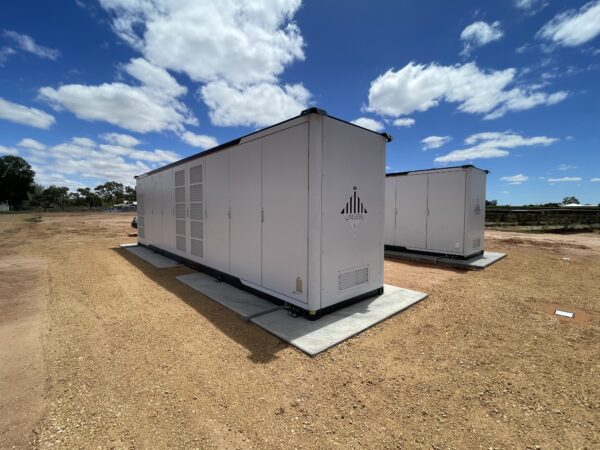
Image: Green Gold Energy
In DC-coupled hybrid projects, the solar system and battery share the same inverter, meaning projects involve less power conversions and have less complexity overall. Henry Liu, Sungrow Australia’s Grid Connection and Product Manager, told pv magazine Australia this pathway boosts projects’ overall efficiency and makes them more cost effective. The projects are also able to harvest more energy from the solar farm when panels are generating more than the project’s nameplate capacity, or when grid curtailment depresses export potential. DC-coupled projects are also thought to have an easier path in the notoriously difficult grid-connection process, though it is a little early to really quantify this.
Since DC-coupled batteries only just started entering Australia’s utility-scale landscape, they have yet be given the green light to trade on what has proven to be the most lucrative revenue stream for big batteries here: the Frequency Control Ancillary Services, better known as FCAS, markets.
This is set to change on June 3, 2024, however, as a result of the Australian Energy Market Commission (AEMC) in December 2021 requesting a rule change from the Australian Energy Market Operator (AEMO) to allow DC-coupled batteries to participate in these markets, among other amendments.
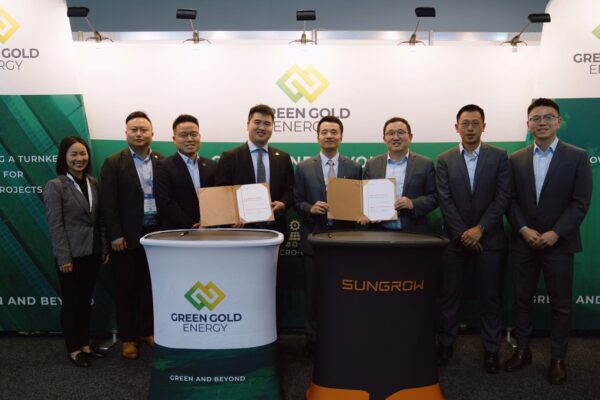
Image: Green Gold Energy / Sungrow
This upcoming change has given both Green Gold Energy and Sungrow confidence to invest in DC-coupled projects for Australia – which they say can offer greater flexibility for projects to communicate with and respond to the electricity network, alongside the benefits mentioned above.
Green Gold Energy is expecting another one of its hybrid projects to come into operations this year, the Elwomple project located south east of Adelaide. Elwomple involves 4 MW of solar and a 4.6 MWh battery system, and is expected to be commissioned in Q3 or Q4. The company has completed around 20 projects to date and has focussed its energies on a specific niche – sub-5 MW projects located in and around South Australia. With over 1.1 GW and 1.2 GWh of projects in its pipeline, the company intends to stay true to its formula – which it says has low connection and planning risk, quicker development and EPC turnaround times, and provides better opportunities to deploy newer technology like DC-coupled batteries.
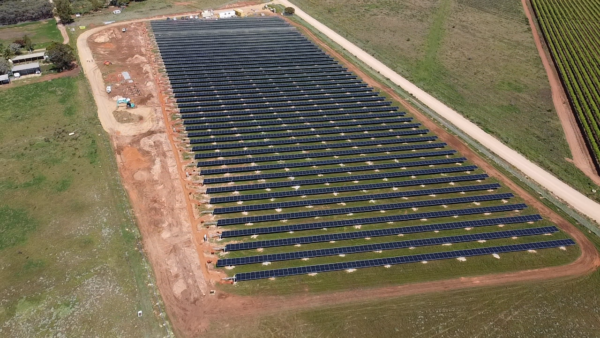
Image: Green Gold Energy
Green Gold does, however, also have some standalone DC-coupled batteries on the horizon, as well as a number of larger-scale projects, like the Morgan Project, with 131 MW (DC) of solar and a 30 MW / 60 MWh battery. The company is also looking to potentially expand to Queensland.
Sungrow too is stepping up its supply agreements in Australia, signing a distribution agreement to provide 500 MWh of energy storage systems (ESS) to Sydney-based wholesaler Solar Juice during the conference last week. Sungrow has also signed a new contract with Brisbane-headquartered wholesaler Raystech Group to supply another 250 MW of its inverters and 50 MWh of its ESS solutions.
Under its agreement with Green Gold Energy, Sungrow will provide its energy storage systems, PV inverters, and power conditioning systems (PCS) to the developer’s upcoming renewable energy projects.
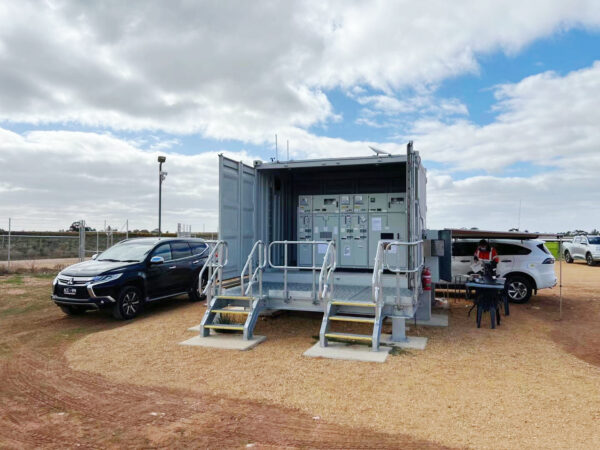
Image: Green Gold Energy
This content is protected by copyright and may not be reused. If you want to cooperate with us and would like to reuse some of our content, please contact: editors@pv-magazine.com.
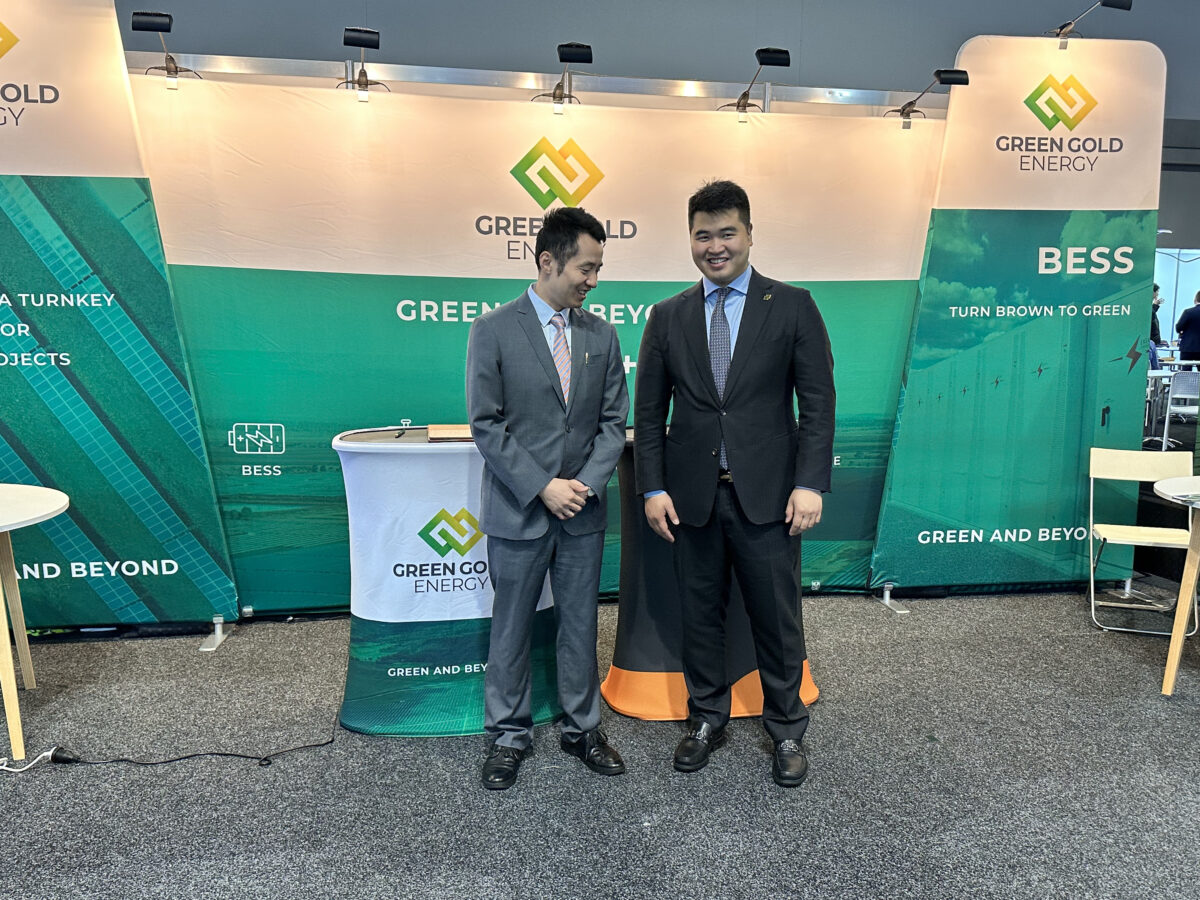








By submitting this form you agree to pv magazine using your data for the purposes of publishing your comment.
Your personal data will only be disclosed or otherwise transmitted to third parties for the purposes of spam filtering or if this is necessary for technical maintenance of the website. Any other transfer to third parties will not take place unless this is justified on the basis of applicable data protection regulations or if pv magazine is legally obliged to do so.
You may revoke this consent at any time with effect for the future, in which case your personal data will be deleted immediately. Otherwise, your data will be deleted if pv magazine has processed your request or the purpose of data storage is fulfilled.
Further information on data privacy can be found in our Data Protection Policy.